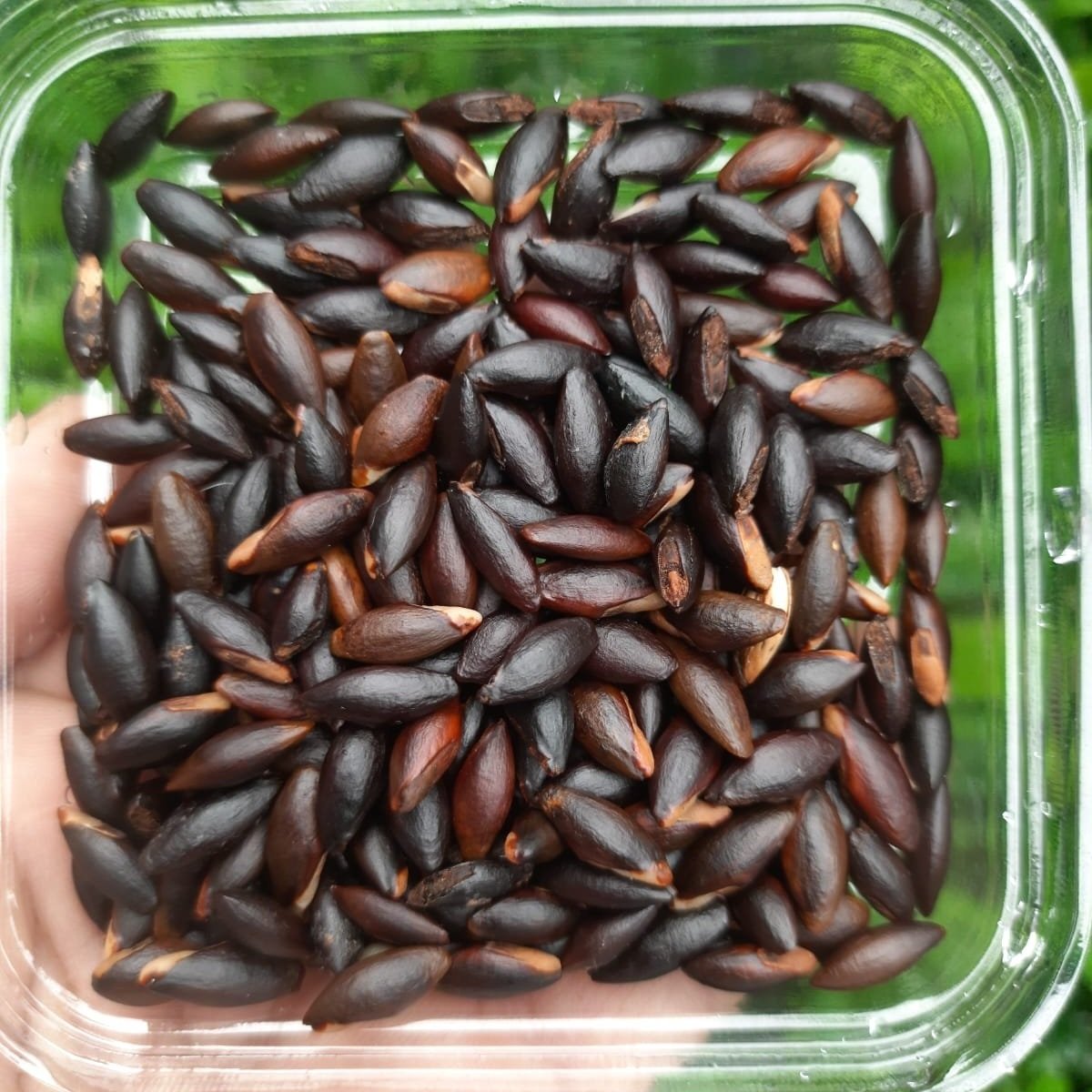Manilkara Dardonoi
Seeds were imported from Brazil. This is one of the hardest Manilkara species to find. Manilkara dardanoi is a large tree species found in the Restinga of Northeast Brazil, as well as along the edges of Atlantic forest remnants, where it becomes one of the tallest trees in forests further inland. It has modest flowering in the apical bud, producing 1 to 3 fruits per branch. The fruits are known for their exceptionally sweet pulp, among the sweetest of the maçarandubas when exposed to sunlight. In the Restinga, the tree remains smaller, while in higher-altitude forests, it can grow up to 30 meters tall. Seeds are shipped in humid vermiculite.
Seeds were imported from Brazil. This is one of the hardest Manilkara species to find. Manilkara dardanoi is a large tree species found in the Restinga of Northeast Brazil, as well as along the edges of Atlantic forest remnants, where it becomes one of the tallest trees in forests further inland. It has modest flowering in the apical bud, producing 1 to 3 fruits per branch. The fruits are known for their exceptionally sweet pulp, among the sweetest of the maçarandubas when exposed to sunlight. In the Restinga, the tree remains smaller, while in higher-altitude forests, it can grow up to 30 meters tall. Seeds are shipped in humid vermiculite.
Seeds were imported from Brazil. This is one of the hardest Manilkara species to find. Manilkara dardanoi is a large tree species found in the Restinga of Northeast Brazil, as well as along the edges of Atlantic forest remnants, where it becomes one of the tallest trees in forests further inland. It has modest flowering in the apical bud, producing 1 to 3 fruits per branch. The fruits are known for their exceptionally sweet pulp, among the sweetest of the maçarandubas when exposed to sunlight. In the Restinga, the tree remains smaller, while in higher-altitude forests, it can grow up to 30 meters tall. Seeds are shipped in humid vermiculite.



